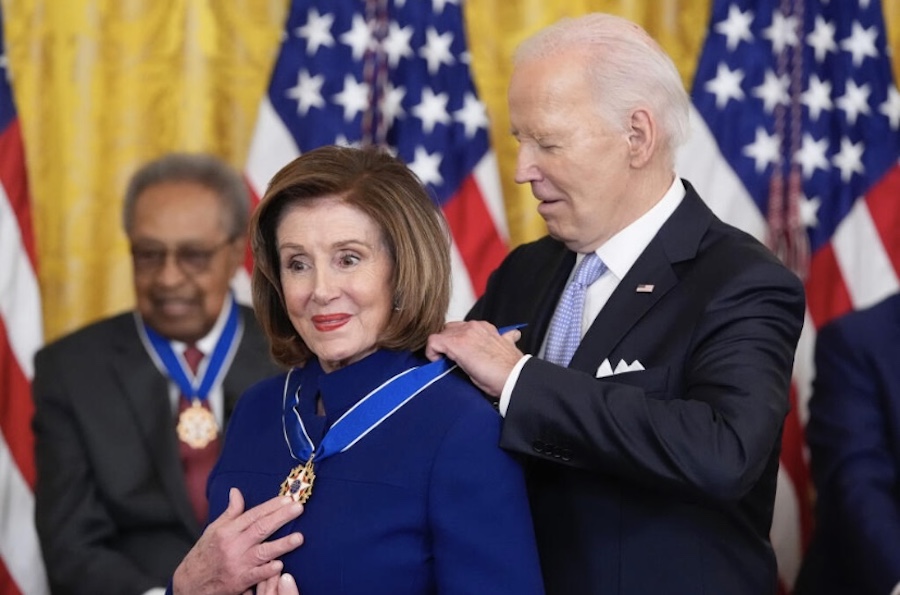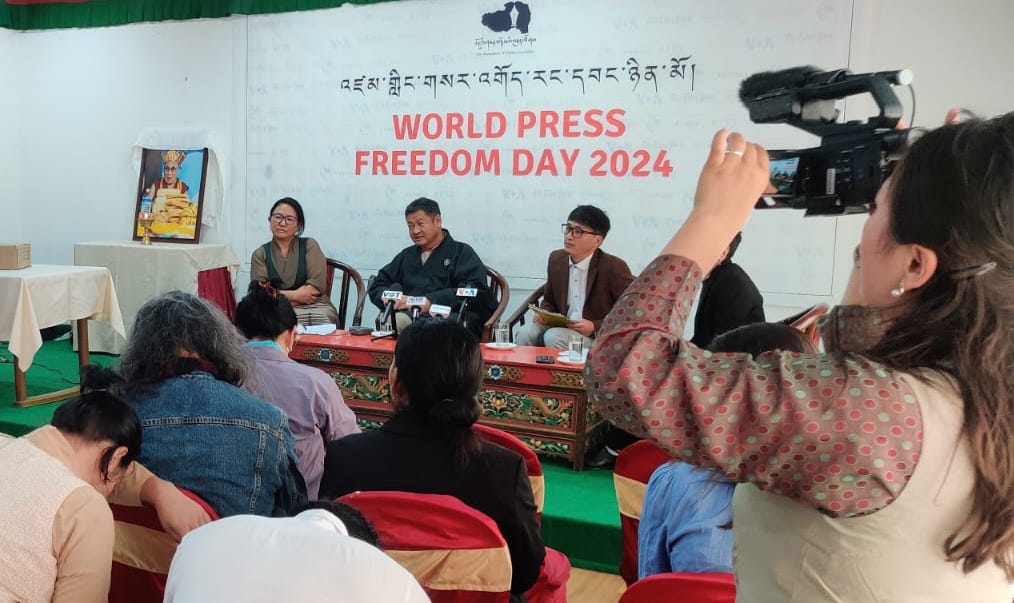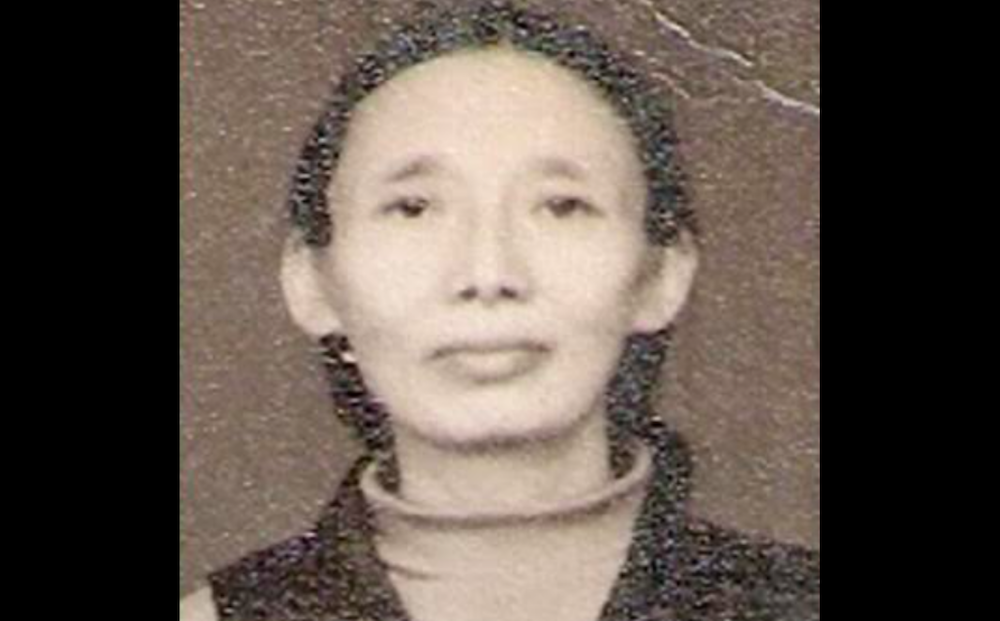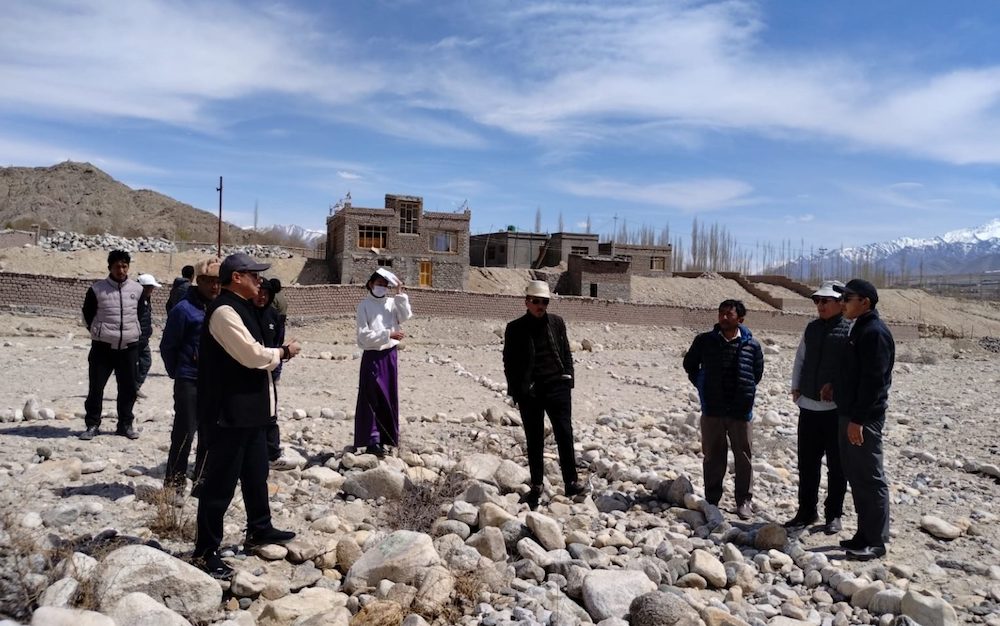By Phurbu Thinley
 Dharamsala, October 9: Ahead of a fresh round of talks with the Chinese government later this month; Tibetans envoys have once again publicly emphasized the need for China to come forward with sincere approach to resolve the long-pending Tibet issue.
Dharamsala, October 9: Ahead of a fresh round of talks with the Chinese government later this month; Tibetans envoys have once again publicly emphasized the need for China to come forward with sincere approach to resolve the long-pending Tibet issue.
Since returning from the seventh round of talks held earlier in July, Tibetans envoys have repeatedly reiterated their calls on China on the need to hold result-oriented talks at various avenues, raising doubts on the failing diplomatic efforts in the ongoing dialogues.
Speaking to audience members at the Harvard Kennedy School on Tuesday, Lodi G. Gyari, special envoy of the Dalai Lama, emphasized the vital role the Tibetan people play in China’s “national family” and called on the Chinese government to participate in bilateral talks with a sincere desire to reach a solution, Harvard Crimson reported yesterday.
During the appearance, Mr Gyari, experiencing restrained responsiveness from Communist Party representatives, expressed concern over whether the ongoing discussions would lead to an equitable solution.
“In the absence of serious and sincere commitment on [the Chinese] part, the continuation of the present dialogue process would serve no purpose,” he was quoted as saying.
Gyari has served as the head negotiator for the Tibetan delegation since talks between the Tibet’s Government in exile, headed by the Dalai Lama, and the People’s Republic of China resumed in 2002 after a decade long deadlock. His continued diplomatic efforts have had some success, but he said Chinese insistence on the Dalai Lama as a major instigator of resistance has slowed down the process.
In the wake of several pro-Tibet protests and demonstrations across Tibet earlier this year, Chinese authorities charged the Tibetan spiritual leader with condoning, even encouraging, violence.
As Gyari noted, Chinese officials were later forced to recognize the protests as “a strong expression of discontentment” on the part of the Tibetan people, not the result of an inflammatory religious influence.
But more than a misplacement of blame, Gyari worried that severe prolongation in discussions would force the Dalai Lama, now 73 years old, to live his remaining days in exile in India. If this were to happen, he said, “it would take generations for the Tibetan people to forgive the Chinese policies.”
But looking ahead to this month’s meeting in Beijing, Gyari was cautiously hopeful. He projected that, for lack of any fundamental differences between the Tibetans and the Chinese, cooperation would eventually lead to a solution in which Tibet self-governance and a stable Chinese society go hand-in-hand.
Gyari carefully distinguished self-governance from independence, a goal that the Dalai Lama’s ‘Middle-Way’ policy has never supported.
Attendees included several members of the local Tibetan communities, some of whom questioned how executive power will be divided between the Chinese government and the Dalai Lama once an accord is reached.
“Obviously we see Beijing as the central government,” Gyari assured, explaining that as the result of an agreement the government-in-exile would dissolve. But by allowing the Dalai Lama to continue to speak as the moral authority for the Tibetan people, he added, China can grow as “a power that is respected, and not just feared.”
Speaking in London on Wednesday, envoy Kelsang Gyaltsen, another lead negotiator for the Tibetan delegation, said Beijing was only taking part to “deflect international criticism”, Daily Mail reported yesterday.
His accusation comes at a critical time when both sides are preparing to enter the eighth round of talks, during which the Tibetan representatives are likely to present their detailed plans for a “genuinely autonomous” Tibet.
The Dalai Lama has called a ‘special meeting’ of ‘all Tibetan exile groups for next month – only the second time this has happened – to discuss the progress of the talks and the situation inside Tibet’.
Gyaltsen said the Tibetan leader did this in response to the “lack of any signs of progress in the dialogue process” and the worsening state of affairs within Tibet following the widespread anti-China protests across the region.
According to him, Chinese repression in Tibet is as bad as it was during the Cultural Revolution.
He warned the situation inside Tibet was “very alarming” and continuing to deteriorate.
“At the moment the situation inside Tibet is for us Tibetans the greatest concern,” he added.
“First of all, now the Olympic Games are over, with that there is also the possibility that the world attention on China will weaken.
“Against this background we feel it is important that the focus is kept on Tibet because the situation inside Tibet is very alarming and very gloomy.”
China’s policies – ranging from movement restrictions and confiscation of computers and mobile phones to its “patriotic re-education” campaign – have made Tibet like a “giant prison”, he said.
“Tibetans inside Tibet speak of a return of the atmosphere of fear and intimidation just like in the days of the Cultural Revolution,” he added.
The last round of talks in July ended with the Dalai Lama’s negotiators telling their Chinese counterparts they were losing hope that the dialogue process served “any useful purpose”, he said.
But the Chinese team responded by saying they had been helpful in giving both sides a better understanding of each other’s position.
And they invited the Tibetans to submit a detailed outline of their proposals for solving the long-running dispute at the eighth round of talks in Beijing at the end of this month, Gyaltsen said.
The Dalai Lama says he is not seeking independence, but wants “genuine autonomy” within the People’s Republic of China for all Tibetans.









